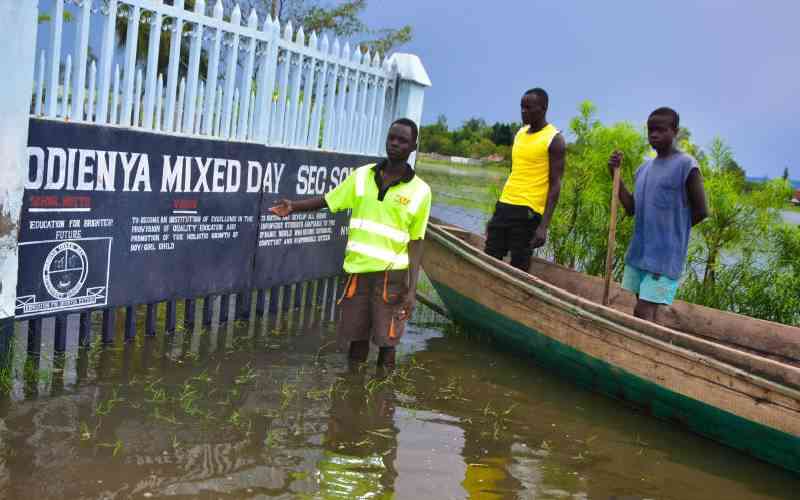×
The Standard e-Paper
Stay Informed, Even Offline

The government's decision to re-open schools after an additional two weeks' holiday break due to heavy rains and flooding is welcome.
Many schools suffered damage including sinking pit latrines and cracked walls. A survey on schools in Mt Elgon sub-county, Bungoma County, showed over 24 schools within Kapsokwony had sinking toilets and cracked classroom walls.